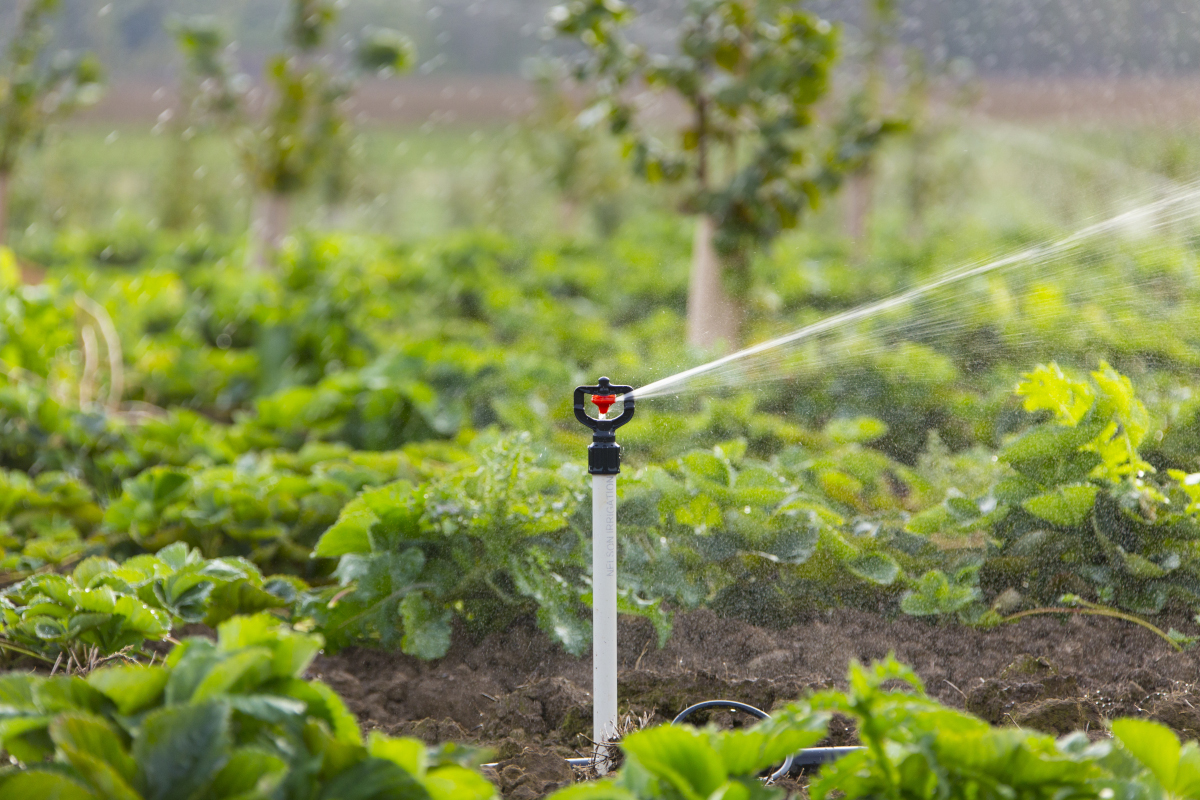
Understanding the Relationship Between Cover Crops and Beneficial Insects for a Thriving Orchard
Imagine an invisible battalion patrolling your orchard, safeguarding your trees from harmful pests while ensuring an incredible yield. This isn't science fiction; it's the remarkable reality of nature's own pest control team: beneficial insects. But how do you invite these tiny guardians to set up camp in your orchard? The answer lies in fostering a thriving ecosystem, starting with the foundation—your soil.
Enter the versatile, multi-talented hero of healthy soil: the cover crop. These low-maintenance champions play a pivotal role in enriching your orchard beyond just nutrient cycling and erosion control. They create a vibrant haven for beneficial insects, attracting these natural allies with a diverse buffet of food and shelter.
Unlike their destructive counterparts, beneficial insects don't feast on your precious fruits. Instead, they dine on a different delicious menu: soft-bodied pests like aphids, thrips, and whiteflies. Cover crops attract these beneficial diners like magnets. These flowering havens become breeding grounds for the next generation of insect guardians, ensuring sustained protection for your orchard.
Different cover crops attract and support specific insect allies, each playing a crucial role in defending your orchard's natural balance. Let's explore some key pairings in this fascinating natural orchestra:
- Ladybugs & Alfalfa: These vibrant beetles adore the pollen and aphids found in alfalfa fields. Ladybugs and their larvae are voracious predators, munching on over 50 common orchard pests like aphids, mealybugs, and scales. Planting alfalfa strips within your orchard or rotating it as a full-season cover crop creates a ladybug paradise, boosting their populations and their pest-control prowess.
- Lacewings & Buckwheat: Lacewings, with their delicate wings and translucent bodies, are the aerial assassins of the insect world. Their larvae specialize in hunting soft-bodied pests like aphids and thrips, making them valuable assets in orchards. Buckwheat's abundant nectar and pollen attract adult lacewings, encouraging them to lay eggs near your trees, where their offspring can feast on the pest buffet.
- Hoverflies & Clover: These bee-mimics are more than just pretty pollinators. Their larvae are relentless aphid hunters, devouring hundreds of these sap-suckers daily. Planting clover as a ground cover provides a steady nectar source for adult hoverflies and a cozy nursery for their larvae, ensuring sustained pest control throughout the season.
- Minute Pirate Bugs & Sunflowers: These tiny ninjas may look unassuming, but they pack a powerful punch. They prey on a wide range of orchard pests, including thrips, mites, and even the eggs of harmful insects. Sunflowers, with their towering stalks and bright blooms, become vibrant beacons for minute pirate bugs, offering them shelter and a diverse menu of pests to keep their appetites satisfied.
These are just a few examples of the amazing partnerships fostered by cover crops and beneficial insects. By understanding the specific needs and preferences of different beneficial species, you can tailor your cover crop choices to create a diverse, pest-resistant ecosystem within your orchard. Remember: Diversity is key—a multi-species cover crop mix attracts a wider range of insect allies, leading to a more robust and effective pest control system.
How to Ensure a Thriving Habitat that Attracts the Right Kinds of Insects
Optimizing your orchard irrigation system plays a crucial role in maximizing the benefits of cover crops and their insect residents. Due to the limited wetted area of drip irrigation, cover crops are not possible. This is where Rotator® full coverage sprinkler systems stand apart. Their innovative technology provides uniform, low-impact watering that nurtures your cover crops to their full potential. Here's how Rotator® systems make a difference:
- Gentle Giants: Unlike the forceful sprays of traditional sprinklers, Rotator® systems deliver water over a wider area which lowers the rate at which water is applied to the soil. This gentle application prevents soil erosion, protects delicate pollen and flower structures, and ensures consistent moisture penetration throughout the root zone. This fosters healthy, vibrant cover crops that attract and sustain a diverse population of beneficial insects.
- Precision with a Purpose: Rotator® sprinklers utilize rotating streams that distribute water with exceptional uniformity. This eliminates puddles and wasted runoff, ensuring each precious drop reaches its target. For cover crops, this translates to deeper root growth, improved nutrient uptake, and enhanced resilience to weather extremes. This robust and resilient environment becomes a magnet for beneficial insects, providing them with a reliable source of food and shelter throughout the season.
- Sustainable Symphony: With water efficiency at their core, Rotator® systems minimize water waste, a crucial consideration for both environmental stewardship and orchard profitability. By delivering water evenly, you conserve this precious resource while simultaneously creating the optimal conditions for cover crop success and beneficial insect activity. This sustainable approach allows you to nurture your orchard's natural defense system while minimizing your environmental footprint.
Investing in Resilience
By using Rotator® sprinklers, you're not just ensuring healthy cover crops; you're investing in a resilient, thriving orchard ecosystem. With a diverse population of beneficial insects patrolling your trees, you can reduce reliance on harsh chemicals, promote natural pest control, and witness firsthand the power of nature's own solutions. So, turn to Nelson Irrigation to orchestrate the perfect blend of gentle irrigation and flourishing cover crops, attracting a buzzing battalion of beneficial insects and unlocking the full potential of your orchard. Find your Nelson Territory Representative today!
